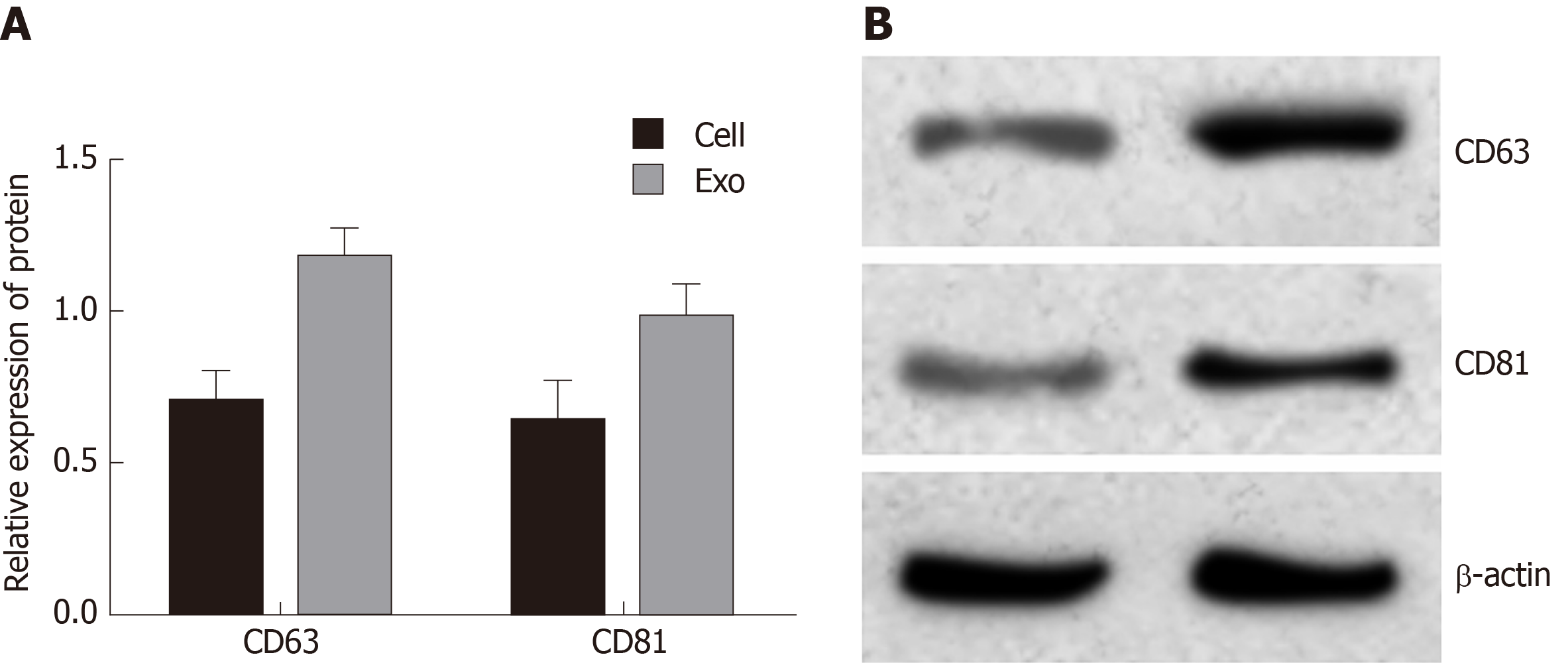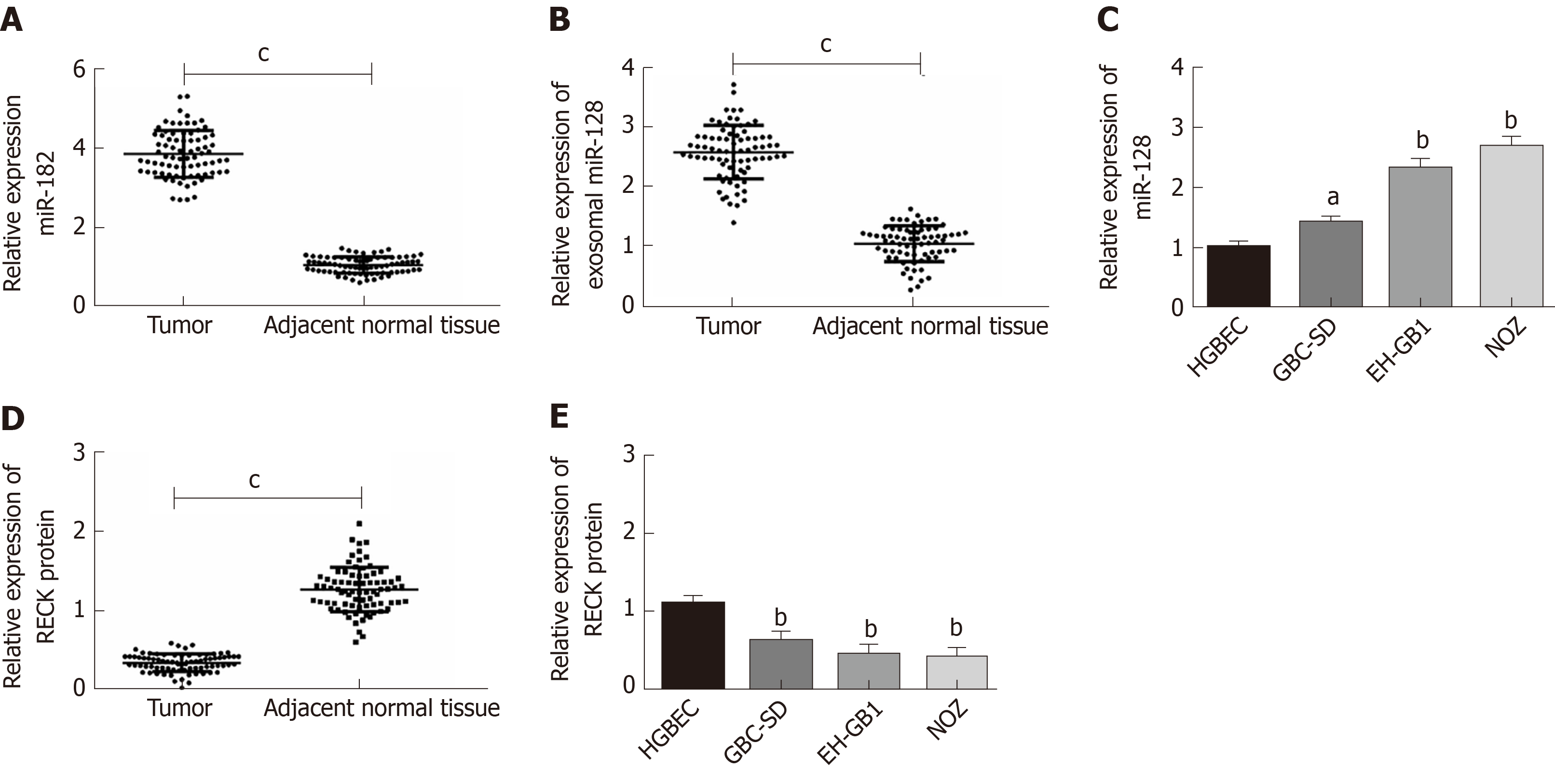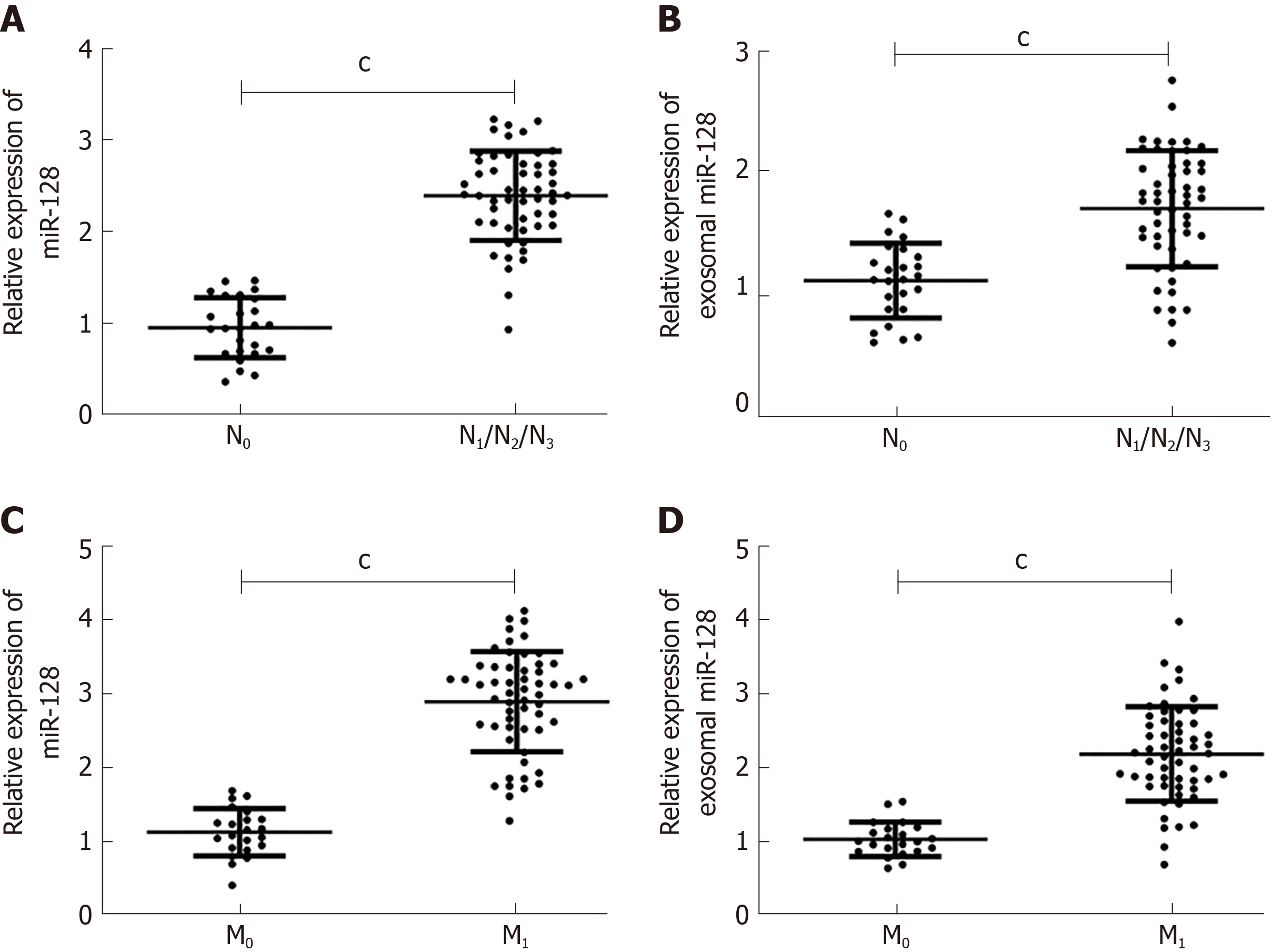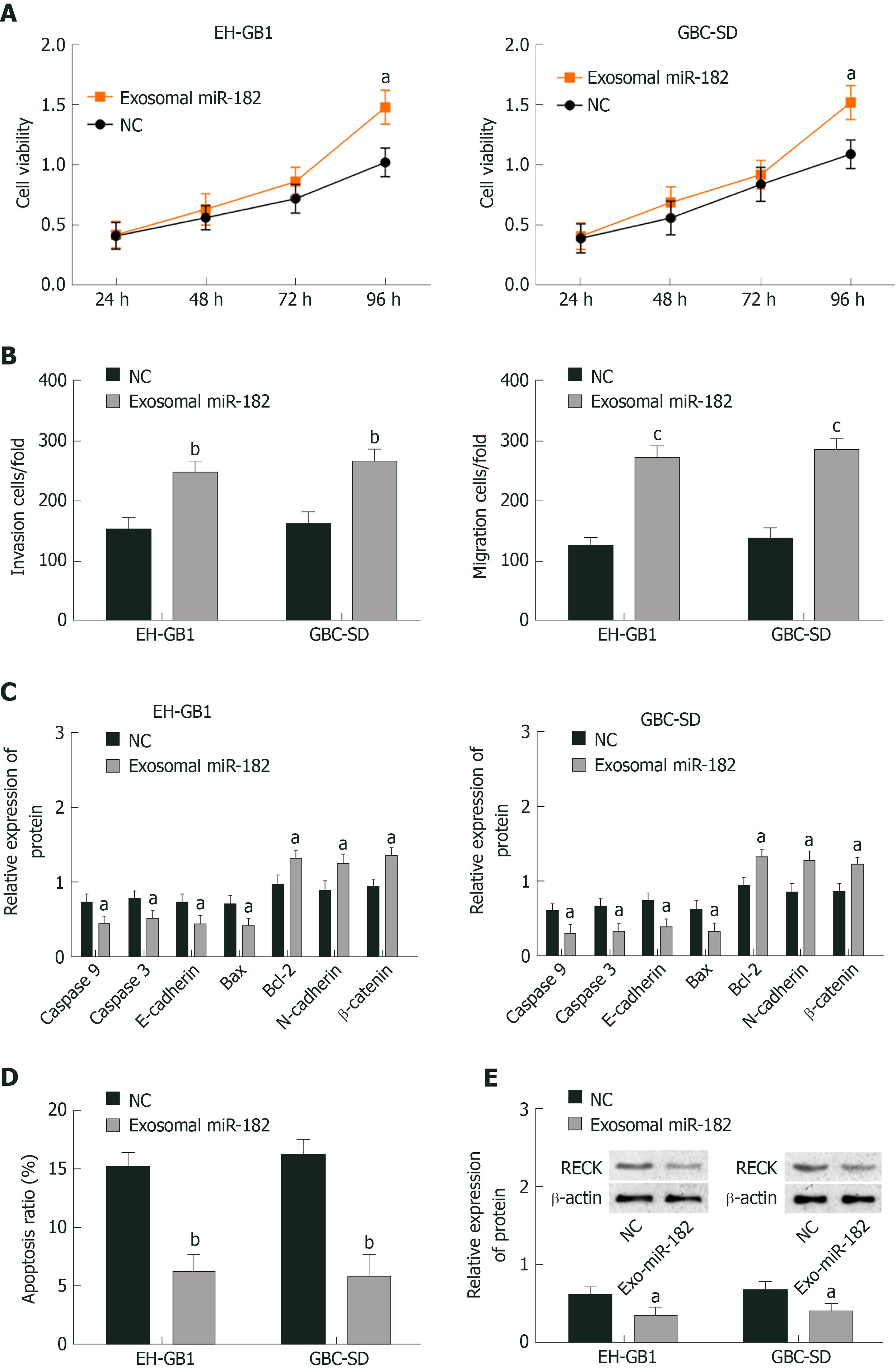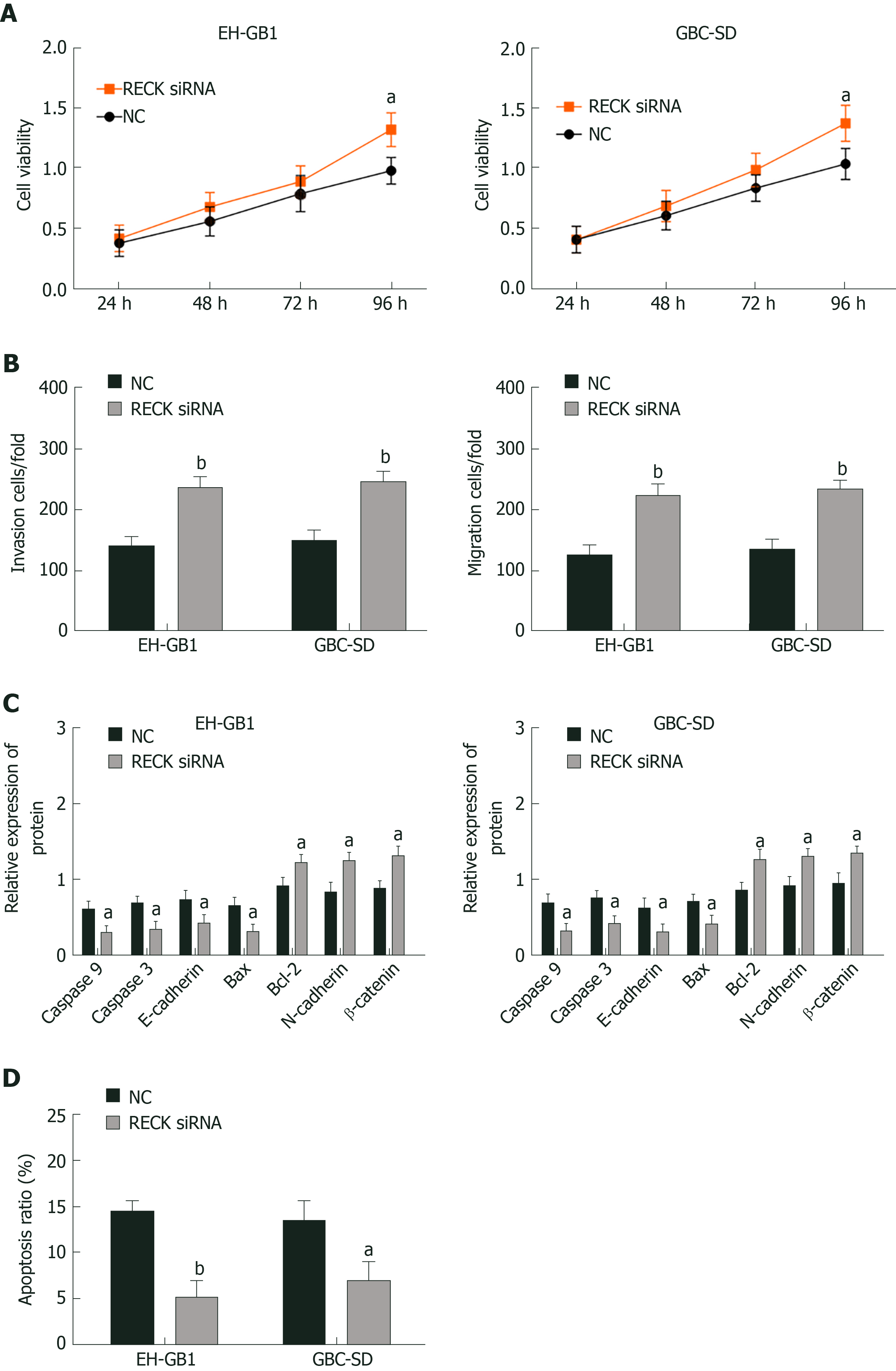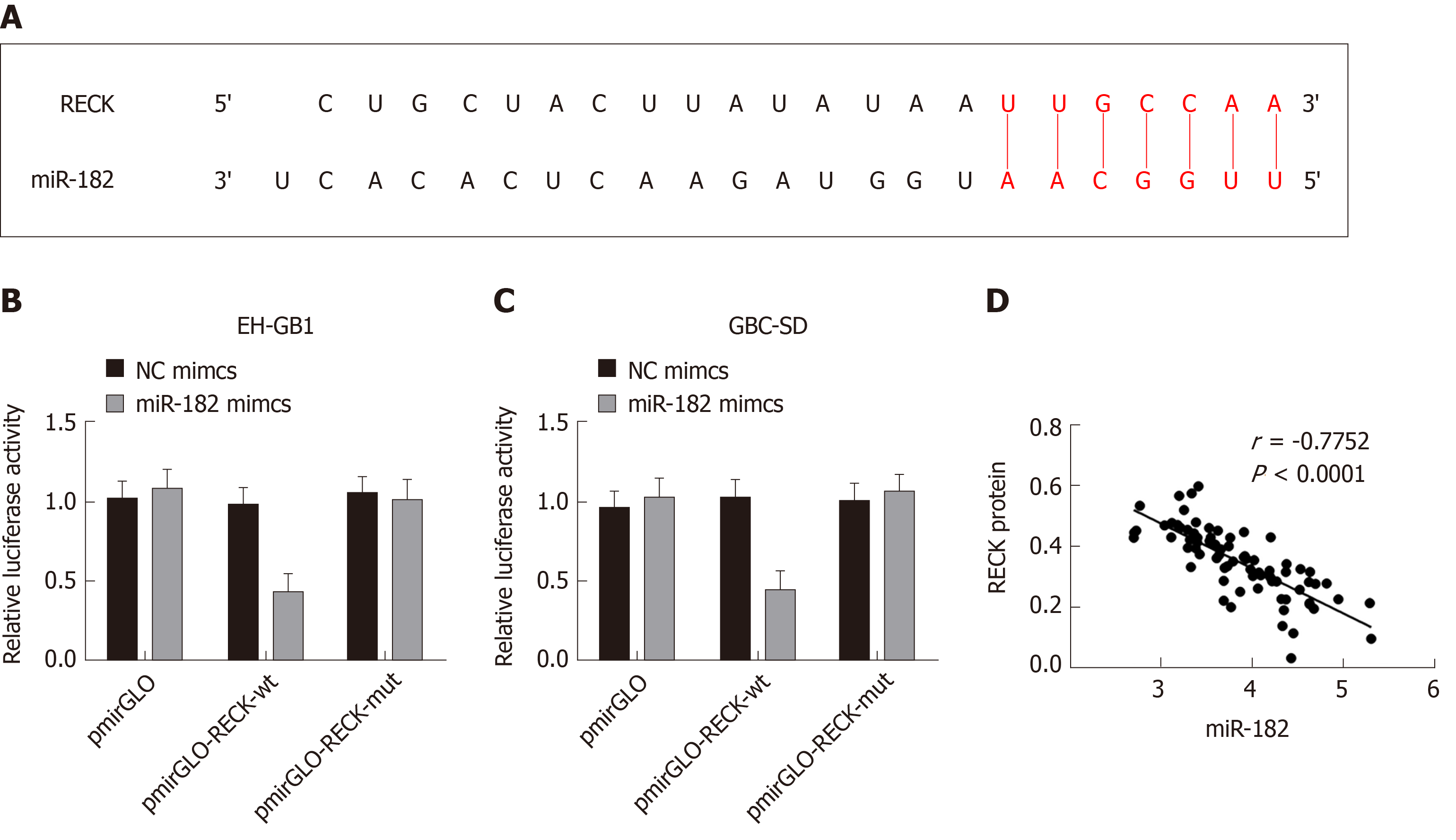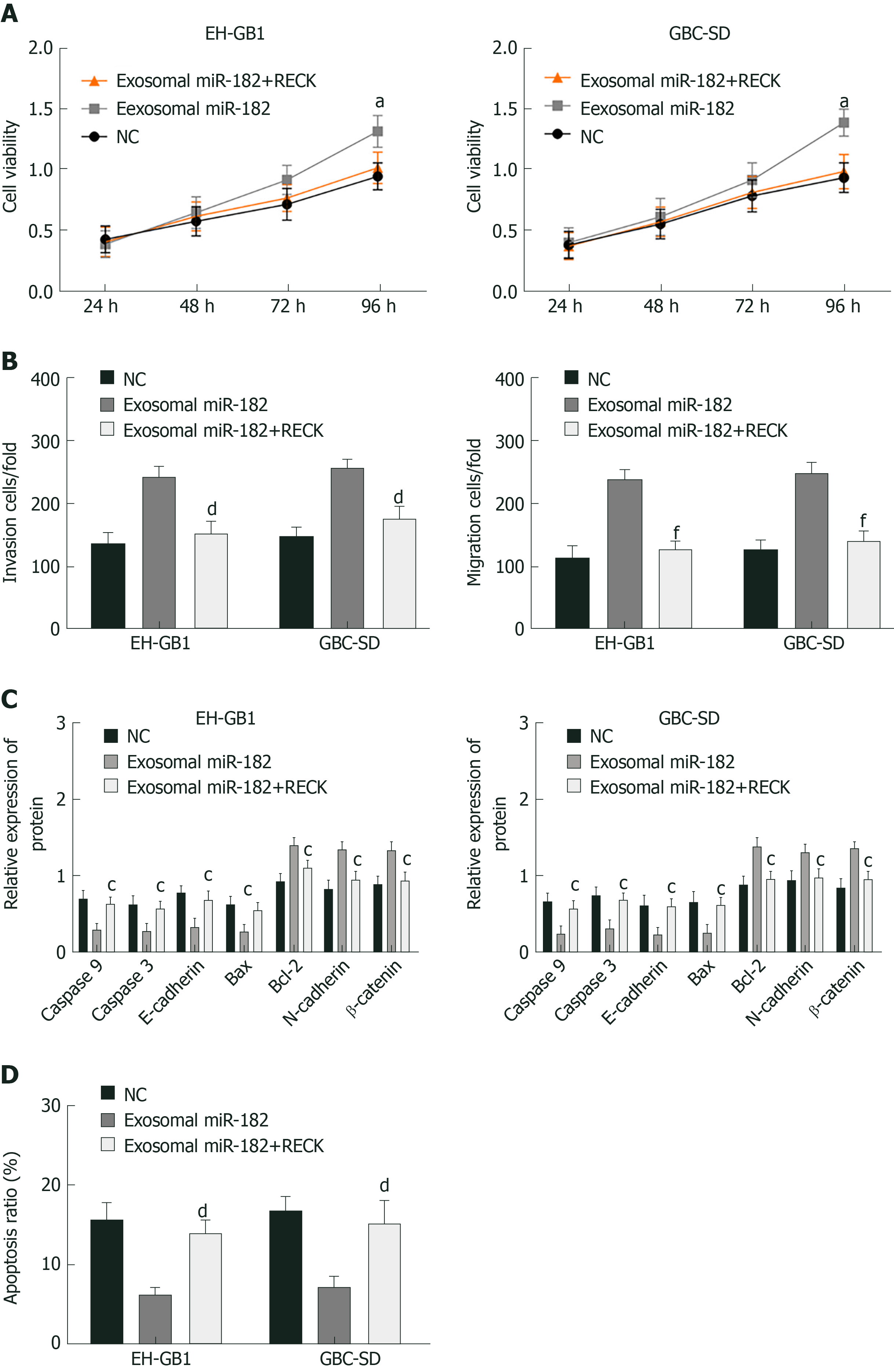Copyright
©The Author(s) 2020.
World J Gastroenterol. Mar 7, 2020; 26(9): 933-946
Published online Mar 7, 2020. doi: 10.3748/wjg.v26.i9.933
Published online Mar 7, 2020. doi: 10.3748/wjg.v26.i9.933
Figure 1 Western blot analysis of cluster of differentiation 63 and cluster of differentiation 81 exosomes.
A: Expression levels of cluster of differentiation (CD) 63 and CD81; B: Western blot bands. Exosomes were isolated from cells; the isolation process is described in “Separation and screening of exosomes.”
Figure 2 MicroRNA 182 was highly expressed, whereas there was low expression of reversion-inducing-cysteine-rich protein with kazal motifs in gallbladder cancer.
A: MicroRNA 182 (miR-182) was highly expressed in gallbladder cancer (GC) tissues; B: Exosomal miR-182 was highly expressed in patients with GC; C: MiR-182 was highly expressed in GC cells; D: Reversion-inducing-cysteine-rich protein with kazal motifs (RECK) protein was highly expressed in GC tissues; E: RECK protein was highly expressed in GC cells. aP < 0.05, bP < 0.01 vs HGBEC. cP < 0.001.
Figure 3 Relationship between microRNA 182 and tumor-node-metastasis staging.
A: MicroRNA 192 (miR-182) was highly expressed in the N1/N2/N3 phase; B: Exosomal miR-182 was highly expressed in the N1/N2/N3 phase; C: MiR-182 was highly expressed in the M1 phase; D: Exosomal miR-182 was highly expressed in the M1 phase. cP < 0.001.
Figure 4 Exosomal microRNA 182 can promote cell proliferation, migration and invasion, and inhibit apoptosis and expression of reversion-inducing-cysteine-rich protein with kazal motifs.
A: Exosomal microRNA 182 (miR-182) enhanced the viability of gallbladder cancer (GC) cells; B: Exosomal miR-182 promoted cell invasion and migration; C: Effects of exosomal miR-182 on caspase 3, caspase 9, E-cadherin, B-cell lymphoma 2 (Bcl-2), Bcl-2-associated X protein, N-cadherin, and β-catenin in GC cells; D: Exosomal miR-182 inhibited apoptosis; E: Exosomal miR-182 inhibited reversion-inducing-cysteine-rich protein with kazal motifs expression. aP < 0.05, bP < 0.01, and cP < 0.001 vs the negative control (NC) group.
Figure 5 Reversion-inducing-cysteine-rich protein with kazal motifs inhibited cell proliferation, migration and invasion, and promoted apoptosis.
A: Reversion-inducing-cysteine-rich protein with kazal motifs (RECK) inhibited viability of gallbladder cancer (GC) cells; B: RECK inhibited cell invasion and migration; C: Effects of exosomal microRNA 182 on caspase 3, caspase 9, E-cadherin, B-cell lymphoma 2 (Bcl-2), Bcl-2-associated X protein N-cadherin, and β-catenin in GC cells; D: RECK promoted apoptosis; aP < 0.05, and bP < 0.01 vs the negative control (NC) group.
Figure 6 MiR-182 targeted inhibition of reversion-inducing-cysteine-rich protein with kazal motifs expression.
A: MicroRNA 182 (miR-182) had binding sites with reversion-inducing-cysteine-rich protein with kazal motifs (RECK) mRNA; B and C: Double luciferase reporter gene assay verified the targeting relationship between miR-182 and RECK; D: MiR-182 was negatively correlated with RECK protein. NC: Negative control.
Figure 7 Rescue experiment.
A: Viability comparison of gallbladder cancer cells in each group; B: Comparison of cell invasion in each group; C: Comparison of EH-GB1 cell-related proteins in each group; D: Comparison of apoptosis in each group. aP < 0.05 vs the negative control (NC) group. cP < 0.05, dP < 0.01, and fP < 0.001 vs exosomal microRNA 182 group.
- Citation: Zheng H, Wang JJ, Zhao LJ, Yang XR, Yu YL. Exosomal miR-182 regulates the effect of RECK on gallbladder cancer. World J Gastroenterol 2020; 26(9): 933-946
- URL: https://www.wjgnet.com/1007-9327/full/v26/i9/933.htm
- DOI: https://dx.doi.org/10.3748/wjg.v26.i9.933









